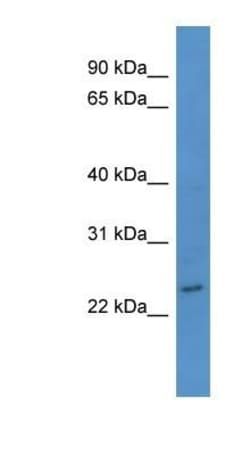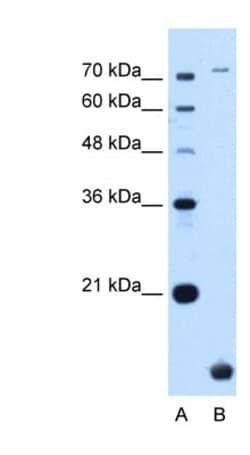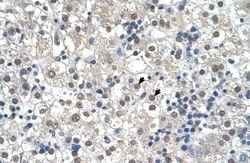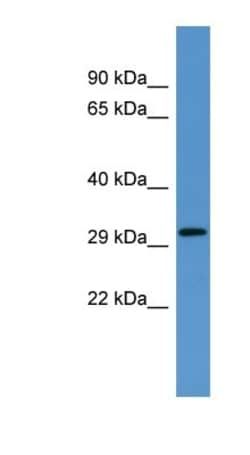BASP1 Antibody, Novus Biologicals™
Manufacturer: Fischer Scientific
Select a Size
| Pack Size | SKU | Availability | Price |
|---|---|---|---|
| Each of 1 | NBP168985-Each-of-1 | In Stock | ₹ 43,387.50 |
NBP168985 - Each of 1
In Stock
Quantity
1
Base Price: ₹ 43,387.50
GST (18%): ₹ 7,809.75
Total Price: ₹ 51,197.25
Antigen
BASP1
Classification
Polyclonal
Conjugate
Unconjugated
Formulation
PBS, 2% Sucrose with 0.09% Sodium Azide
Gene Alias
brain abundant, membrane attached signal protein 1,22 kDa neuronal tissue-enriched acidic protein, brain acid-soluble protein 1, CAP-23, CAP23brain acid soluble protein 1, NAP-22, NAP22MGC8555, Neuronal axonal membrane protein NAP-22, neuronal tissue-enriched acidic protein
Host Species
Rabbit
Molecular Weight of Antigen
23 kDa
Quantity
100 μL
Research Discipline
DNA replication Transcription Translation and Splicing
Gene ID (Entrez)
10409
Reconstitution
Centrifuge the vial of lyoph antibody at 12,000 x g for 20 seconds. Add 50μL of distilled water. Vortex followed by centrifuge again to pellet the solution.Final concentration is 1mg/mL in PBS buffer.
Content And Storage
Store at 4°C short term. Aliquot and store at -20°C long term. Avoid freeze-thaw cycles.
Applications
Western Blot
Concentration
0.5 mg/ml
Dilution
Western Blot 1.0 ug/ml
Gene Accession No.
P80723
Gene Symbols
BASP1
Immunogen
Synthetic peptides corresponding to BASP1 (brain abundant, membrane attached signal protein 1) The peptide sequence was selected from the C terminal of BASP1. Peptide sequence APAAGEEPSKEEGEPKKTEAPAAPAAQETKSDGAPASDSKPGSSEAAPSS.
Purification Method
Affinity purified
Regulatory Status
RUO
Primary or Secondary
Primary
Test Specificity
Yeast: 82%.
Target Species
Human, Rat, Rabbit, Yeast
Isotype
IgG
Related Products
Description
- BASP1 Polyclonal specifically detects BASP1 in Human, Rat samples
- It is validated for Western Blot.








